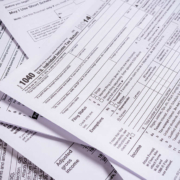Claiming an Elderly Parent or Relative as a Dependent
Do you have an elderly parent or adult relative that you take care of? It doesn’t have to be a parent; it could be an adult child with special needs, an elderly aunt or another close relative. As long as it is a qualifying relationship, the IRS allows you to claim such a persons as a dependent on your tax return. There are certain criteria and it must be done in a certain way, but it can be done. Below are the general guidelines, but you should consult with your tax professional for details.










